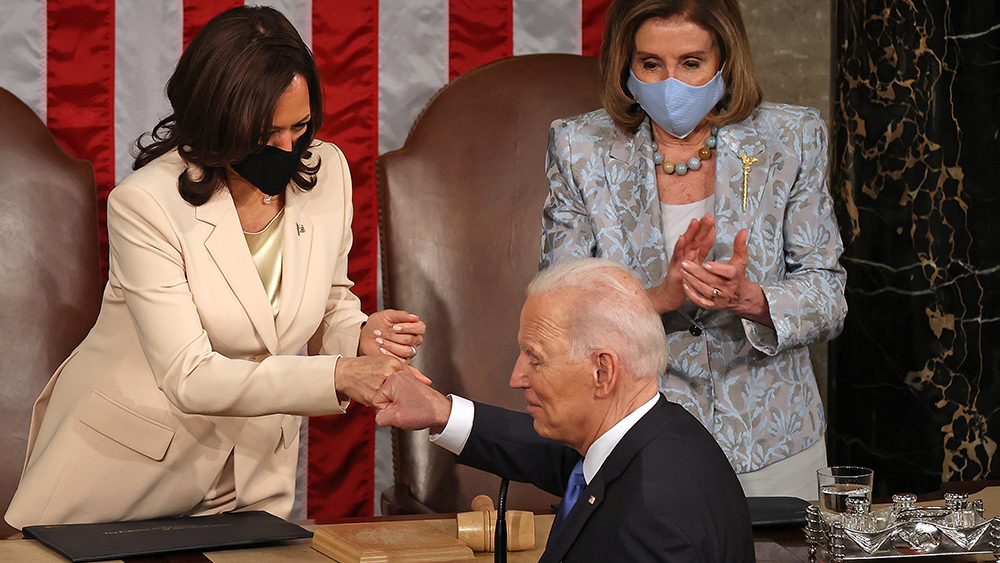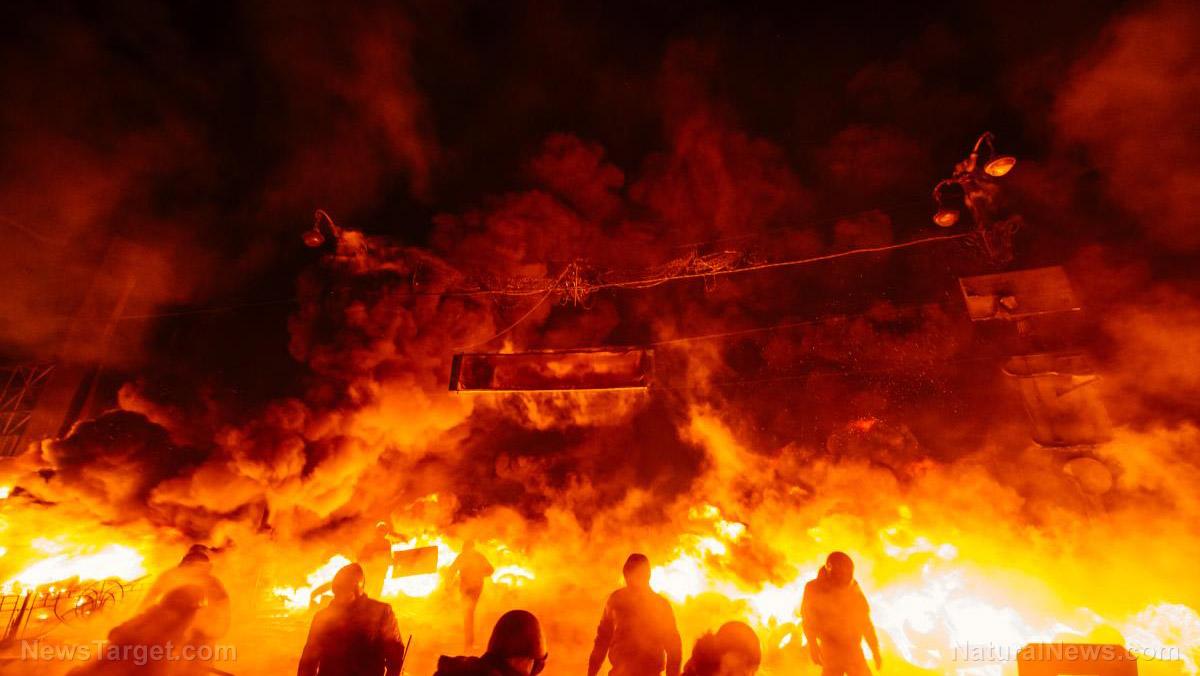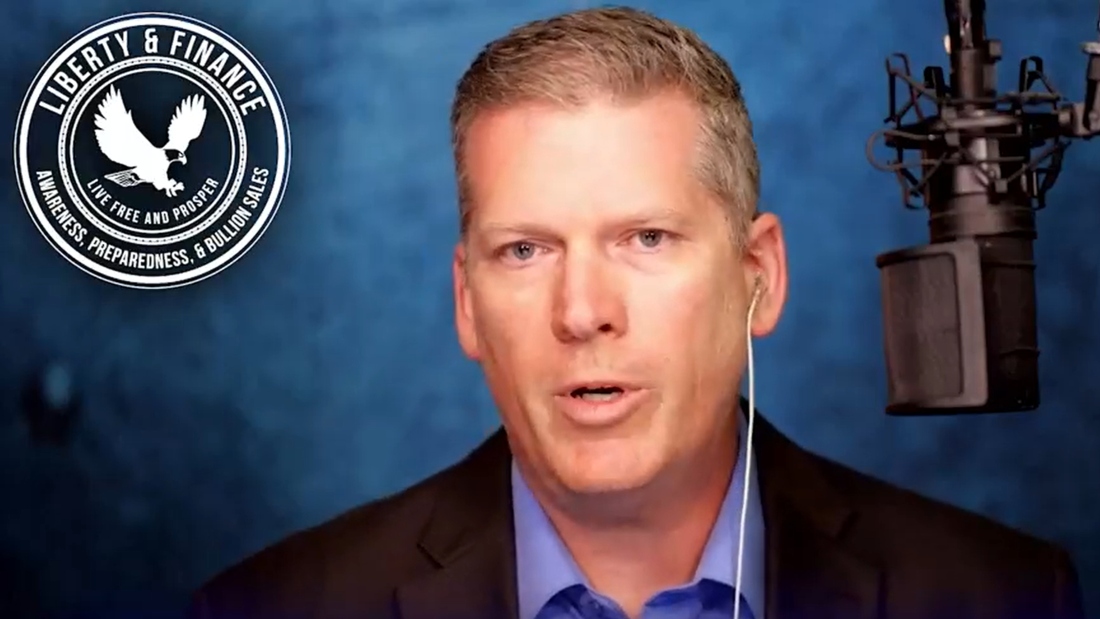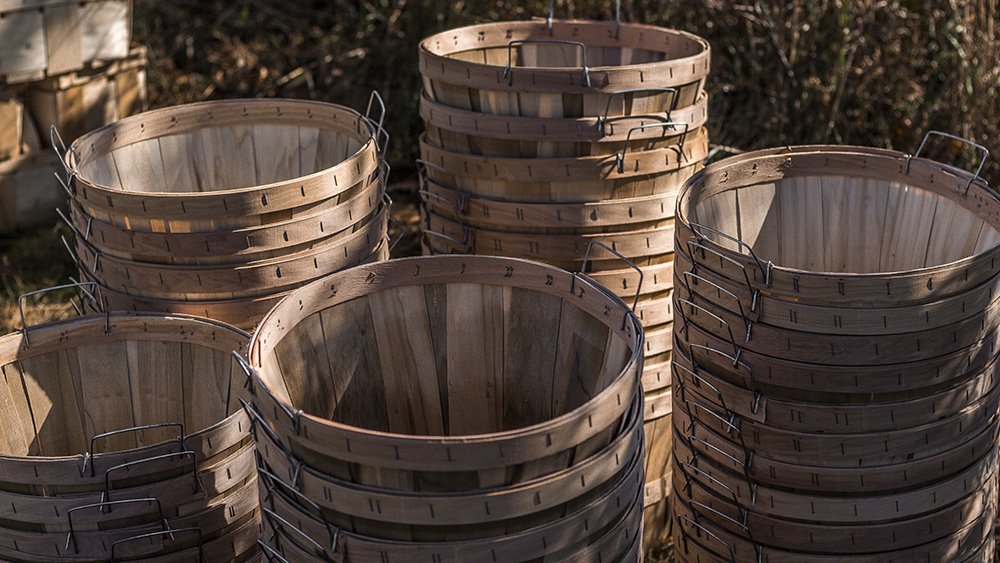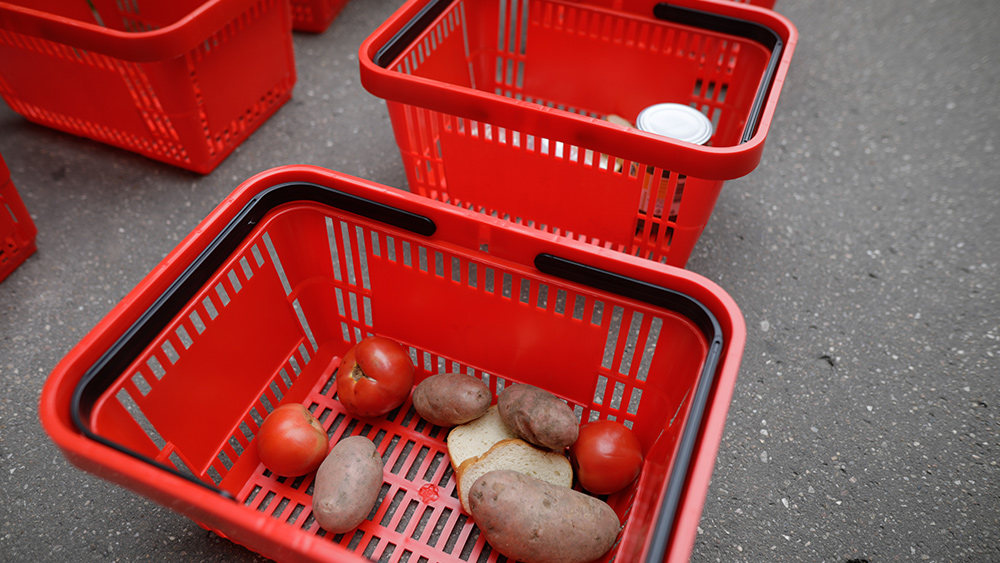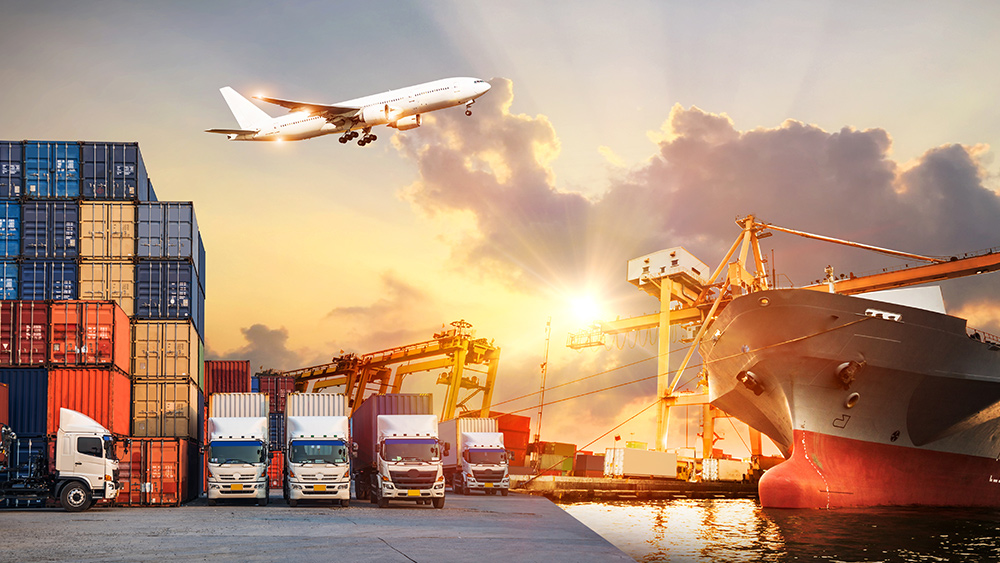War in Ukraine halts almost all shipping in the Black Sea, threatening global supply chain
03/10/2022 / By Arsenio Toledo

The Russian invasion has left hundreds of ships and thousands of sailors stranded in Ukraine. Not only is this predicament endangering their lives, it is also threatening global trade.
According to London-based shipping tracker Windward Ltd., around 200 ships with an estimated crew of 3,500 sailors remain stuck at Ukrainian ports since Feb. 24, the first day of Russia’s invasion.
The war has shut down ports in the world’s second-largest grain exporting region. Ukraine and Russia make up over 30 percent of global wheat exports. Ukraine alone accounts for 16 percent of global corn exports. The war has already caused global wheat prices to surge by more than 55 percent.
“This shock to global grain supply is the biggest supply shock since the OPEC oil cuts in the 1970s,” said Salvatore Mercogliano, a professor at Campbell University in North Carolina and former merchant mariner. “It will mean food shortages in the Middle East and Africa, and inflation across the world.”
Ships stuck in Ukraine in danger of being hit by Russian munitions
The ships stuck in Ukrainian ports include one sunflower oil carrier, at least a dozen oil-product tankers and 45 bulkers that transport grains, ores and coal. (Related: Food crisis incoming: War in Ukraine threatening global food supplies, half a billion people at risk of hunger.)
In the Port of Mykolaiv, to the west of Russian-occupied Crimea, several dozen cargo ships got stuck in the harbor right before it was shut down due to the war. In the southwestern city of Odessa, more than 50 cargo carriers and at least one container vessel experienced the same fate and were left stranded.
In the Port of Olvia, close to Mykolaiv, the Bangladeshi cargo ship MV Banglar Samriddhi got stranded and was struck by a Russian missile. At around 5:25 p.m. on March 2, the missile hit the bridge of the ship, killing one crew and seriously injuring several others.
The next day, MV Helt, an Estonian cargo ship, sank after being struck with an antiship weapon below the waterline. Ukraine’s navy has accused Russia of attacking commercial ships to force them into dangerous parts of the Black Sea. Such moves would conceal the Russian navy’s own military maneuvers.
Five commercial vessels have been struck by Russian artillery or antiship weaponry since the invasion started. The three other vessels were ships owned by companies from Turkey, Moldova and Japan. The ships were either tankers, container ships or bulk carriers. They were ferrying a variety of goods before they got stuck in Ukrainian ports, including diesel, clay and grain.
Russian forces also reportedly detained two Ukrainian merchant ships.
The ships still stuck in Ukrainian ports are unable to leave because there are no harbor pilots to guide them out. Even if the ships were able to leave the port, navigation in many parts of the Black Sea is restricted due to the threat posed by underwater mines.
“All ports are blocked,” said Henrik Jensen, managing director of Ukrainian manpower agency Danica Crewing Specialists, which has provided around 40 crew to two ships stuck in the country. “This is a terrible situation.”
“The sailors now face a stark choice,” said Munro Anderson of maritime-security company Dryad Global. “Stay and risk running out of food and becoming collateral damage, or try to sail to freedom and risk hitting a seaborne mine.”
Ongoing conflict adding stress to fragile global supply chains
All over the world, thousands of Ukrainian and Russian sailors are stuck in their ports, unable to go home. Their previous employers were forced to scramble to find replacement crews to keep their ships running.
The ships that were meant to pick up goods from the Black Sea region will not be able to make their deliveries anytime soon. This is a cause of concern for countries that rely on exports coming from the area, such as grain. Egypt, for example, imports 85 percent of its wheat from Ukraine and Russia and is now scrambling to find other sources of wheat before it faces a catastrophic food shortage.
Other countries bracing for shortages and spikes in the prices of food products include Turkey, Syria and those in the Middle East and North Africa.
Shipping companies that are willing to brave the conflict will be forced to pay several hundreds of thousands of dollars more for a trip. On the first day of the invasion, when sea traffic in the region ground almost to a complete halt, global freight rates for tankers surged to their highest daily rate in a decade. Insurance premiums for ships venturing to the region also jumped to as much as five percent.
More related stories:
Here are the countries most likely to face hunger crises thanks to Russia’s invasion of Ukraine.
Top shipping companies are suspending bookings to and from Russia.
Russia-Ukraine conflict not helping American companies with their supply chain problems.
Ongoing Russia-Ukraine conflict pushing global economy closer to collapse.
Listen to this episode of the “Health Ranger Report” as Mike Adams, the Health Ranger, talks about how the economic sanctions placed on Russia will cause a global crop collapse.
This video is from the Health Ranger Report channel on Brighteon.com.
MarketCrash.news has the latest news regarding how the conflict in Ukraine is affecting the global economy.
Sources include:
Submit a correction >>
Tagged Under:
chaos, Collapse, conflict, economic collapse, economic crash, economic crisis, economy, food collapse, food supply, Inflation, market crash, products, Russia, Russo-Ukrainian War, shipping, shortages, supply chain crisis, Ukraine, World War III
This article may contain statements that reflect the opinion of the author
RECENT NEWS & ARTICLES
COPYRIGHT © 2017 FOOD SUPPLY NEWS

